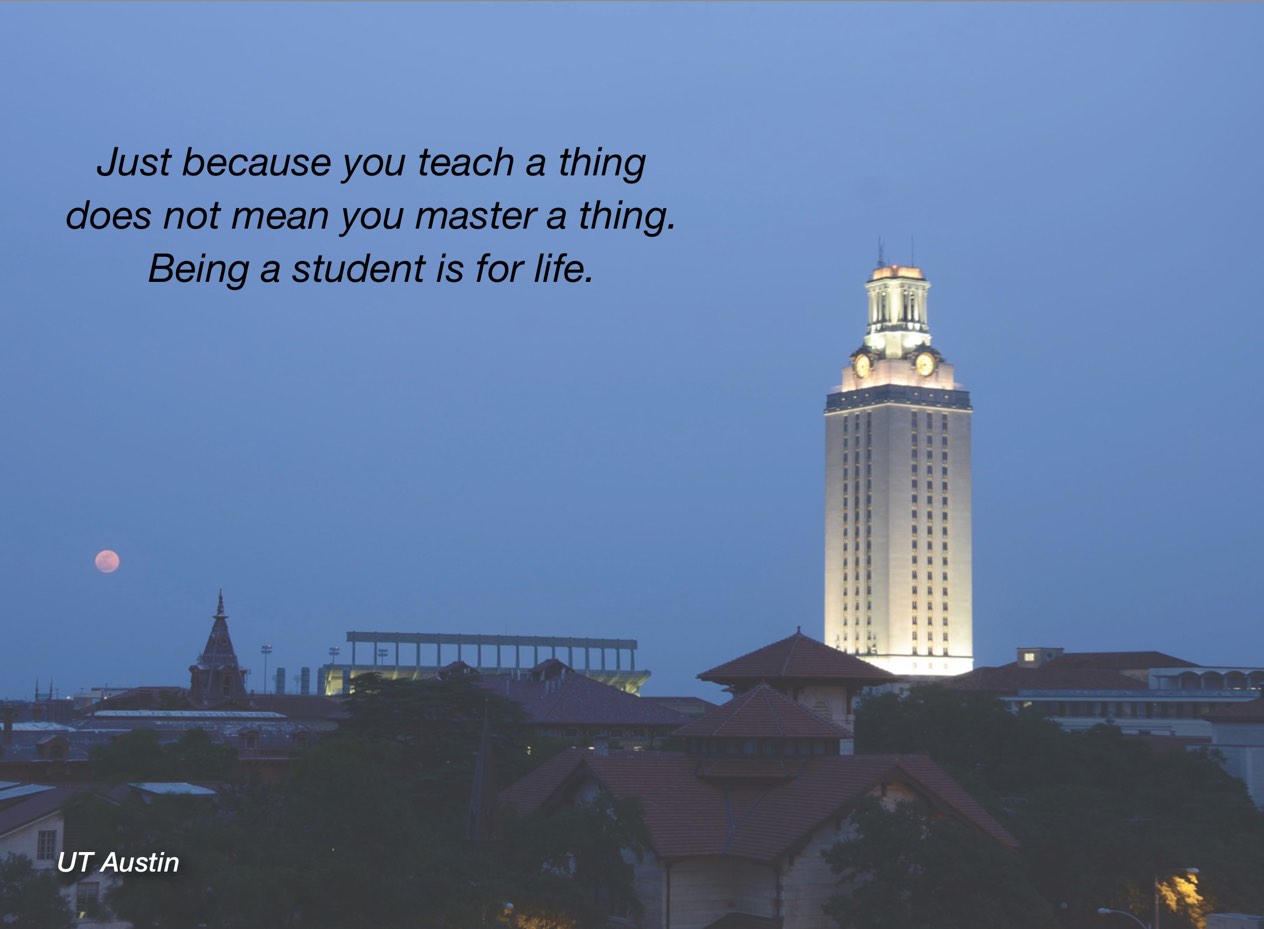7 Teaching and Learning Passion


Sophia Andres
Where does passion come from? Is it intrinsic to one’s personality?
An interesting phenomenon in student evaluations is their responses to the teacher’s personality rather than to their own progress in the course. As the chair of my department for several years, I have noticed this trend not only in my own evaluations but also in those of my colleagues. A recurrent comment in my student evaluations, for instance, is that I am passionate about my subject and my passion is contagious. Where does passion come from? Is it intrinsic to one’s personality? Are some people gifted with it while others lack it and may not ever acquire it, no matter how hard they try? Who were some of my passionate teachers? I recall only two. As an undergraduate, I did not know anything about Milton except what I had heard from my classmates – that he is just boring. And then I had a teacher who was so passionate about Milton that I actually looked forward to each class session. In yet another dreaded poetry requirement course, we all regularly conspired to rebel over the workload. But as soon as our teacher entered the classroom, she swept us away with her passion and charm. Consequently, after each class we would duly cancel our revolution.
What do these people have in common? What fuels my own passion semester after semester? Well, at least in my case, I can detect some of the components of passion. Besides love for my subject, new perspectives and the prospect of sharing them with my students make me excited about teaching any topic. At times a new perspective is so interesting that it will render meaningless an approach I had used before.
Passion also stems from the realization that we have enabled students to grasp new information. We all know learning is a complicated and often problematic process, because our familiarity with our material sometimes makes us unaware of the students’ inability to understand what we have already mastered. We may overcome some of these problems by actively engaging students in the learning process rather than by readily providing knowledge through our lectures. For this reason, I break down my lectures into questions, which students, by collaborating with their peers in groups, answer and present to the rest of the class. I also make the groups responsible for answering questions from their classmates. This way, questions that might have otherwise remain unasked during a lecture arise during discussions with their peers. Following their responses, I discuss only the points that students have overlooked. Such a method may work in either face-to-face or online classes. In online classes, I turn questions based on the material in my lectures into wikis; the end result is equally gratifying.The interconnection between research and teaching is one of the components of passion. When I am working on a project for publication, I am obsessed with it. And of course I test out my new ideas with my students. I am constantly surprised to see that their lack of knowledge may enable them to have original perspectives. There have actually been times when I ask them to let me take a minute to write down one of their comments. Needless to say, they get excited every time I treat them as contributors to, rather than passive recipients of, knowledge. In turn, their excitement fuels my passion.
Passion does have several components. Here I have been able to discuss only two but, if you think about it, I am sure you will discover many more!


Chapter 7 Commentary: Catherine Ross
“Sophia Andres and I both teach English literature, and most folks may find it amusing or quaint that we are passionate about poems such as “The Rime of the Ancient Mariner” or novels such as Jane Eyre. The truth is I do like these texts, but I’m not passionate about the literature itself: I’m passionate about seeing the looks on students’ faces when, suddenly, as we are working on one of their readings, they discover something new and realize how great it is to be a thinking, feeling human being. I’m passionate about making those moments happen for students, because it is my hope that in college they will learn to live full lives, lives that are guided by personal and social responsibility and lifted up by energy and their own passions.”

